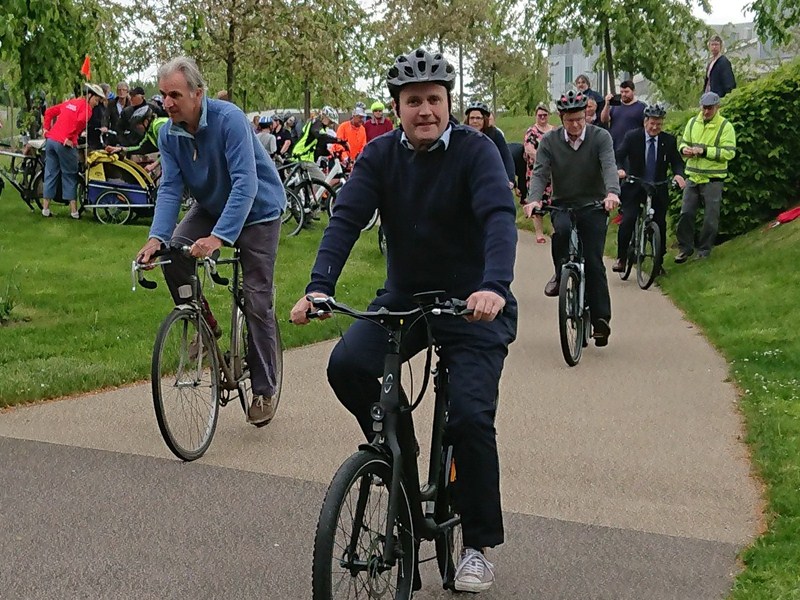After serving with military intelligence during the invasion of Iraq, MP Tom Tugendhat has gained an especially strong insight into the campaign’s conduct.
Though proud to have done his duty with British troops, he is clear the 2.6 million word inquiry into the UK’s decision to join the war represents an indictment upon former Prime Minister Tony Blair’s administration.
In making his report, Sir John Chilcot stated its key aims had been to determine if it was right and necessary to invade Iraq in 2003, and whether the UK should have been better prepared for subsequent events.
He concluded that British troops had joined invasion forces before peaceful means had been exhausted, and that ‘military action at that time was not a last resort’. The key justification for going to war had been Saddam Hussein’s supposed stockpile of weapons of mass destruction, which the inquiry found had not been substantiated.
As revealed by the Times last month, Mr Tugendhat had been working on a Chilcot-linked report for the think tank Policy Exchange alongside former Labour MP Jo Cox, who was brutally murdered on June 16.
They had both expressed differing views on the Iraq war, with the Tonbridge MP’s perspective as a serving soldier being that it was ‘strategically unwise’, while Jo Cox opposed the invasion based on her concern for civilian populations.
In their joint report Mr Tugendhat explained they had ‘shared a concern that the UK was becoming more introspective and less engaged in the world’ and that Britain had key lessons to learn from Iraq – namely not moving towards isolationism or a taking an anti-interventionist stance on global events.
He said: “Jo and I were coming at the report from a different perspective, but we were both passionate about seeing that Britain has a positive part to play in the world, which was our starting point.
“It reminded us we should never take the view that we shouldn’t be doing anything abroad, as that would not be in our interests or duty. I think Britain does a lot of good things across the world, and there is a place for intervention.”
As for the Chilcot Inquiry itself, he rejected criticism of its seven-year timescale, describing it as ‘an amazing piece of work’ that had required time to ensure its accuracy.
He added: “The key thing to emerge from the inquiry was the failure to have a proper strategy in Iraq, and also the UK’s failure to properly challenge the assumptions that were made by senior officials, as well as the failure of the Prime Minister to challenge those assumptions.”
Mr Tugendhat addressed the issue of a perceived collective failure during an appearance on the BBC’s Question Time earlier this month. Speaking to its audience, he explained he was not surprised by Chilcot’s criticism over Tony Blair, but he had been alarmed by the overall strategy in Iraq.
He said: “What distressed me was about the senior commanders of the armed forces and our senior diplomats.
The report is extremely harsh on them – not just in the preparation for war, but its execution.
‘I was hit in the face by some shrapnel’
“There are many voices that should have spoken out and stayed silent. There were many generals who should have realised the tactics and strategy were not working and stayed silent. It wasn’t my duty then to judge political actions – it’s the duty of generals and diplomats to look after the men and women who are there executing the will of the Government in the field.”
On his own service in Iraq, he revealed he was deployed by the army under detachment to the Royal Marines with intelligence duties – which saw a number of frontline encounters with Iraqi forces.
He recalled: “I was there with a fantastic group of friends, but it was very much a nerve-wracking time, though a huge privilege to be there with my unit.
“I was actually injured out there in the early part of the campaign – we ran into a few fights and I was hit in the face by some shrapnel, but it wasn’t too serious, and I didn’t even notice at the time. Being there was a great experience, though very challenging as it was very clear early on that there wasn’t a plan for ‘the next day’ after the invasion.”
As to whether Tony Blair should face legal or civil action in light of Chilcot’s findings, the MP responded that he ‘was a soldier rather than a lawyer’ who wished to focus on how best to improve strategic operations for the future – including building on work David Cameron achieved in setting up the National Security Council.
He added that he remained ‘saddened’ that the situation in Iraq remains unstable, which he felt the British and US governments were in part responsible for, along with failings in the new Iraqi administration.








